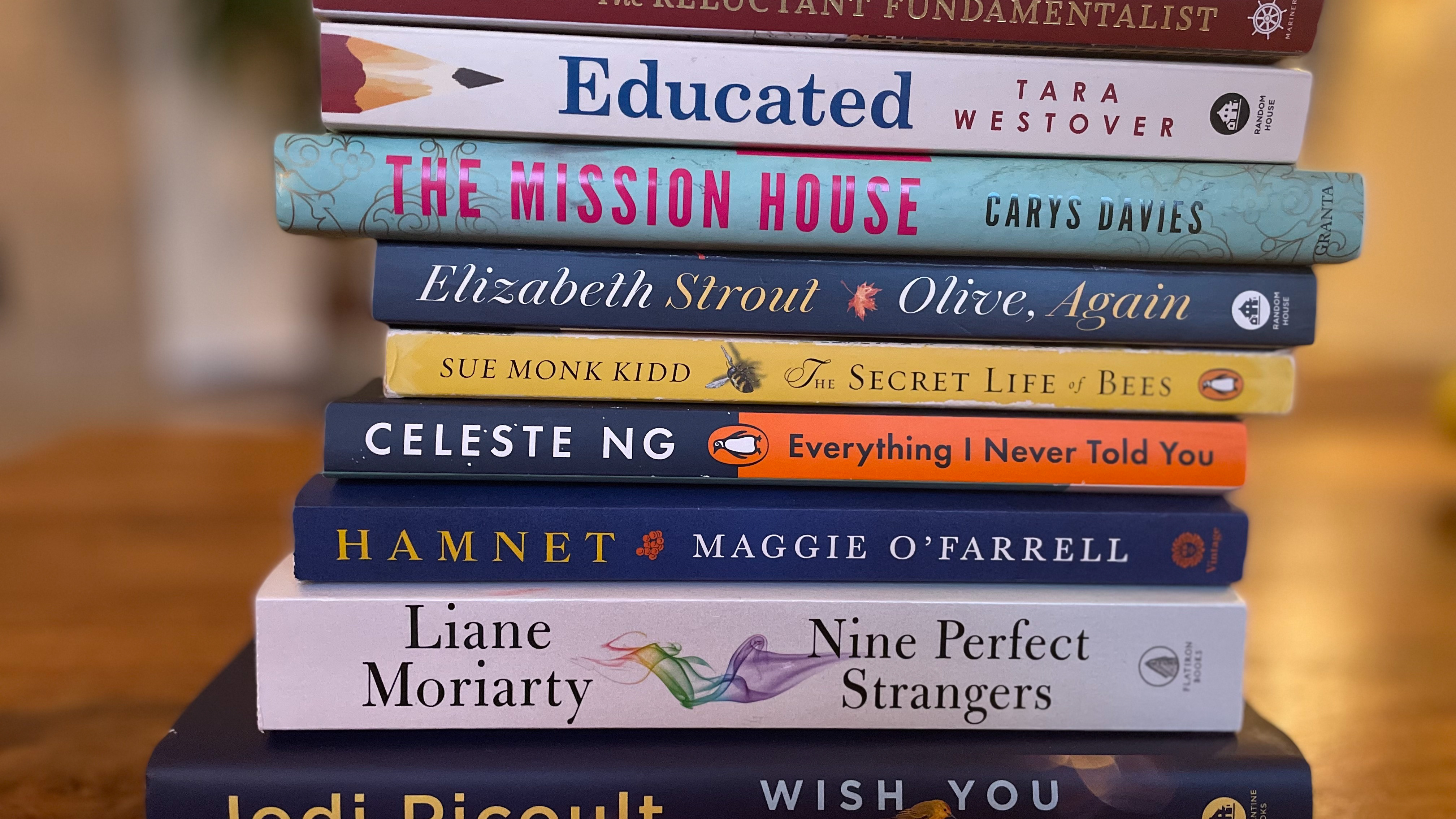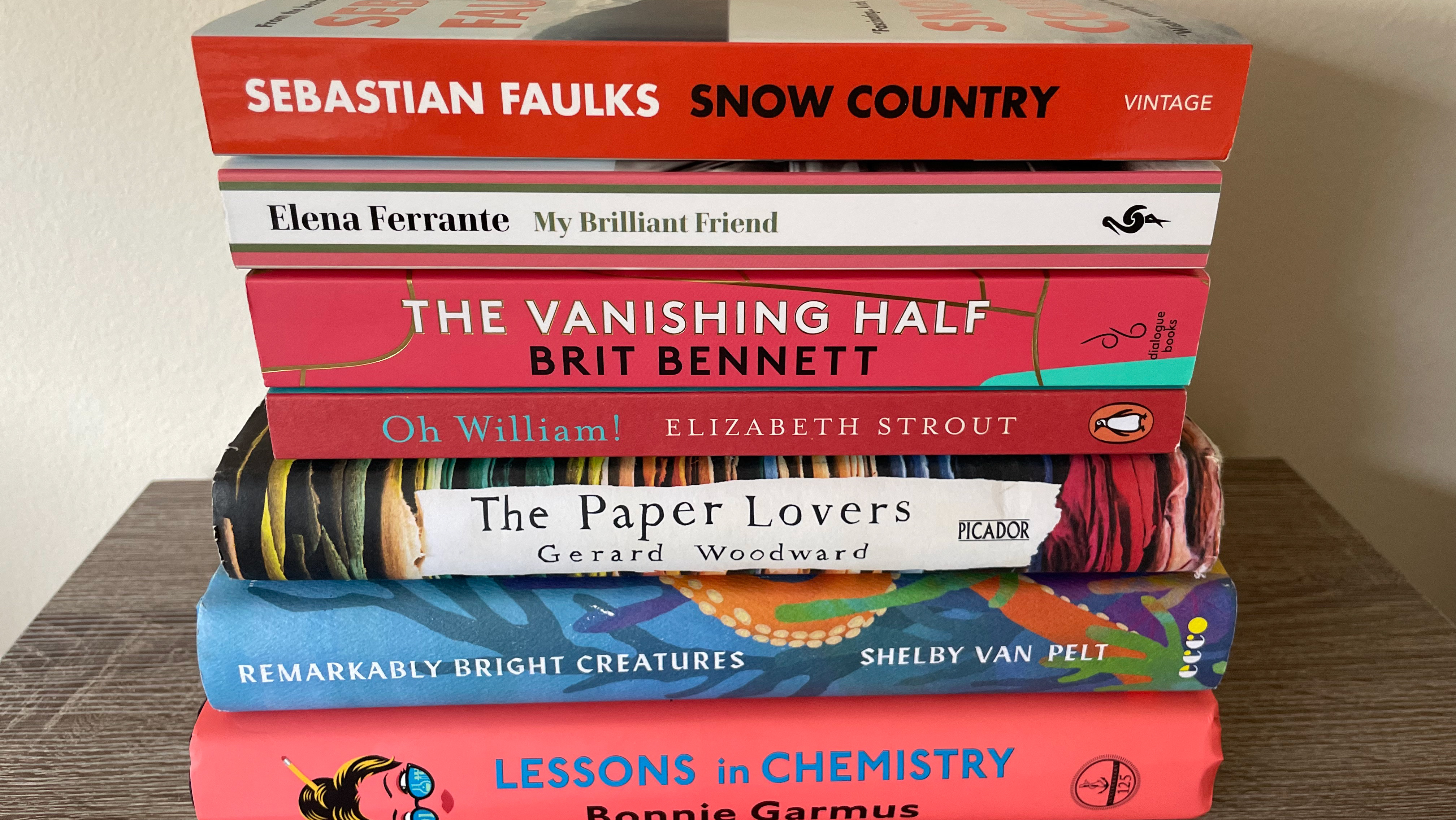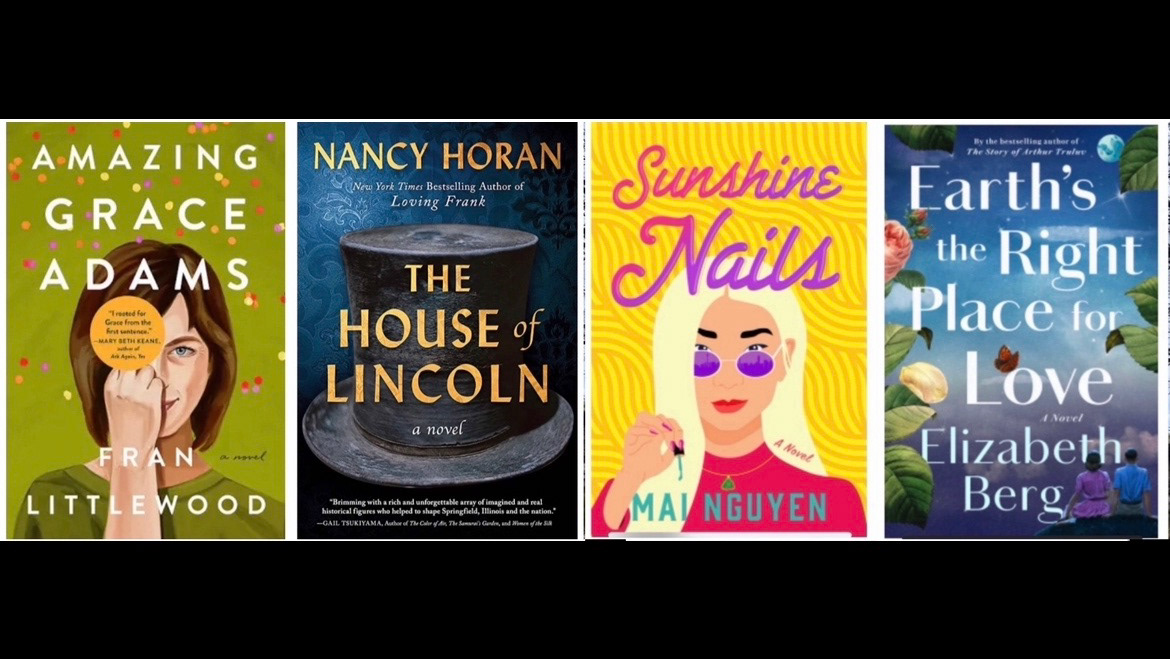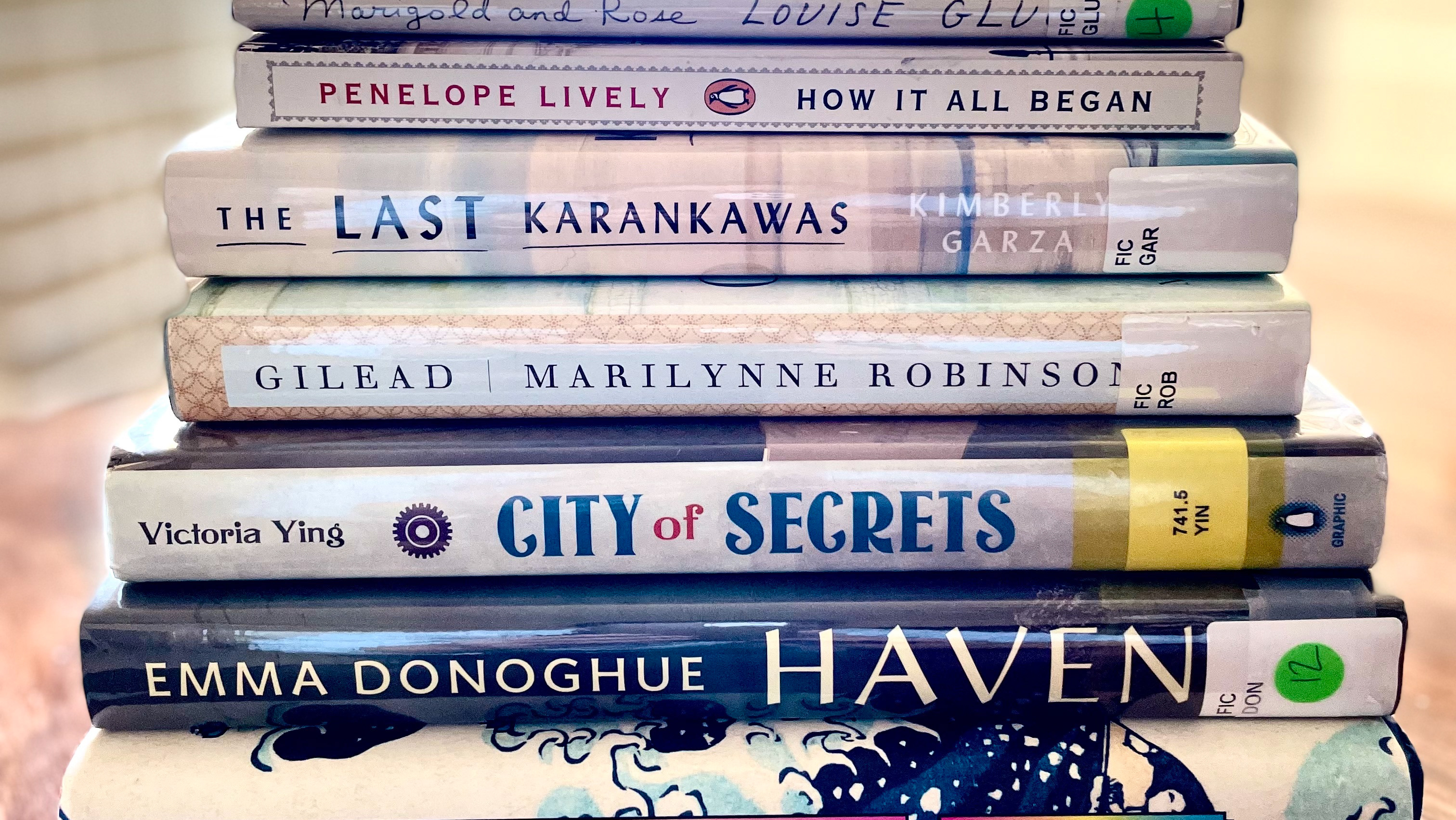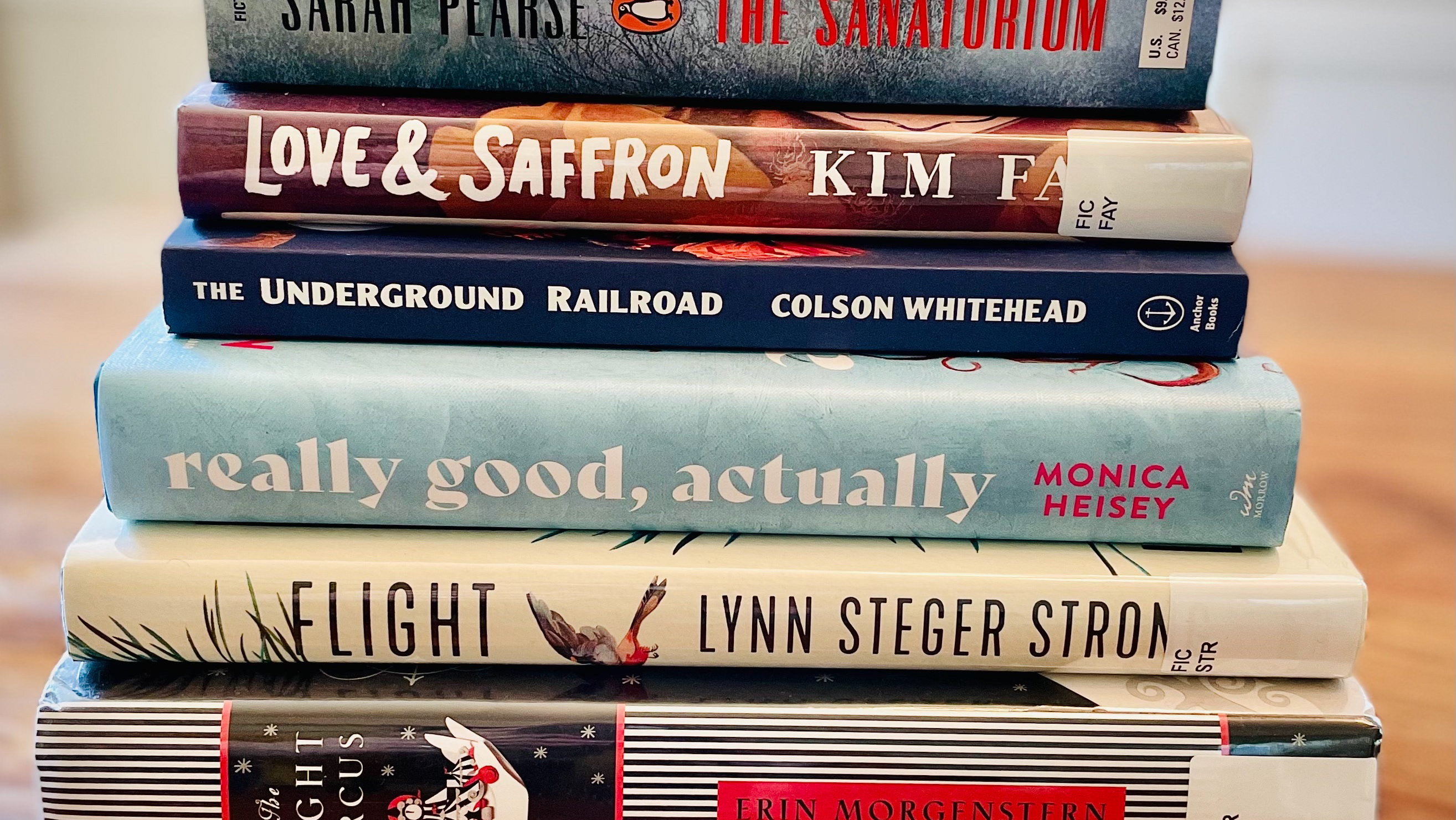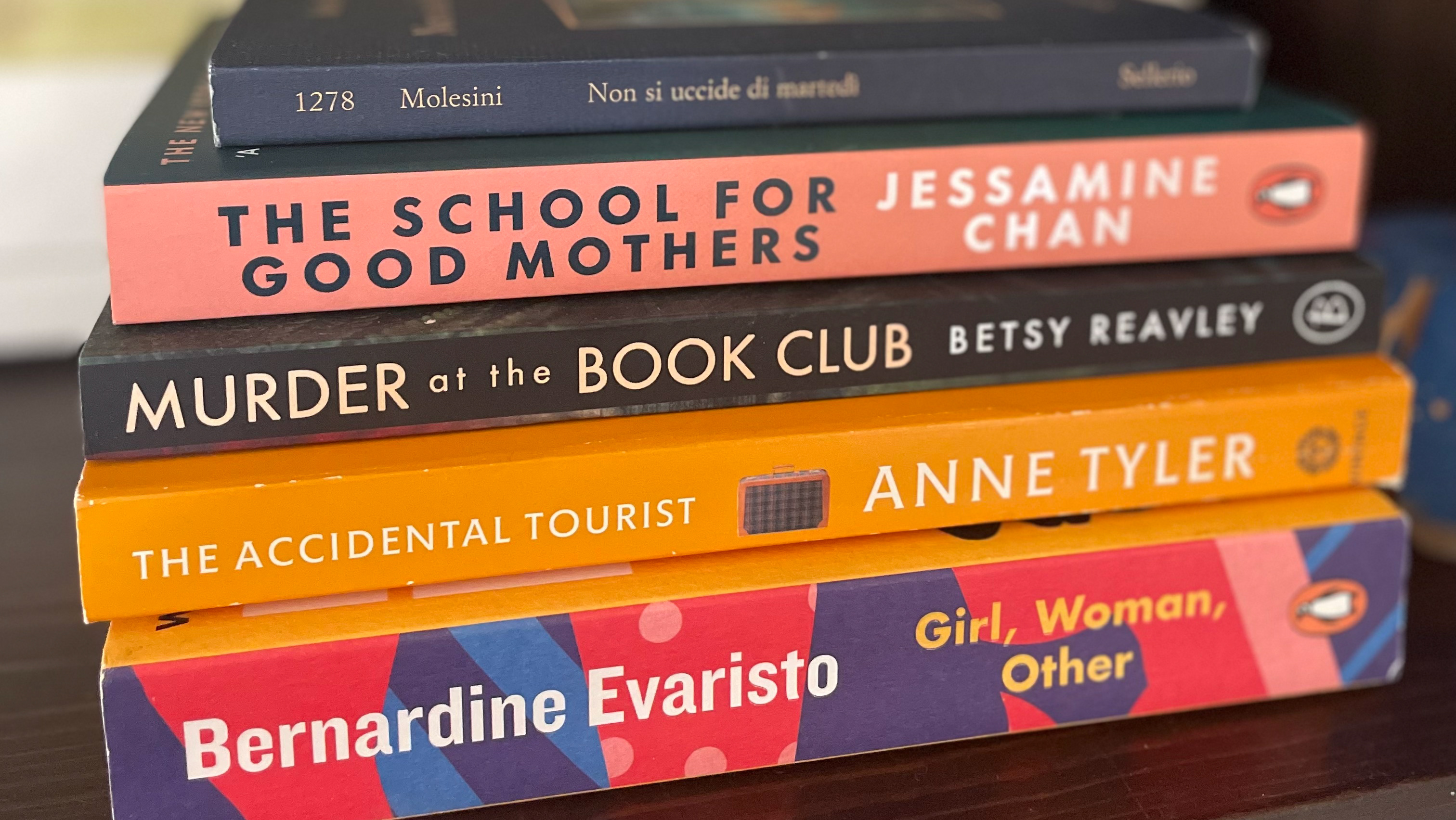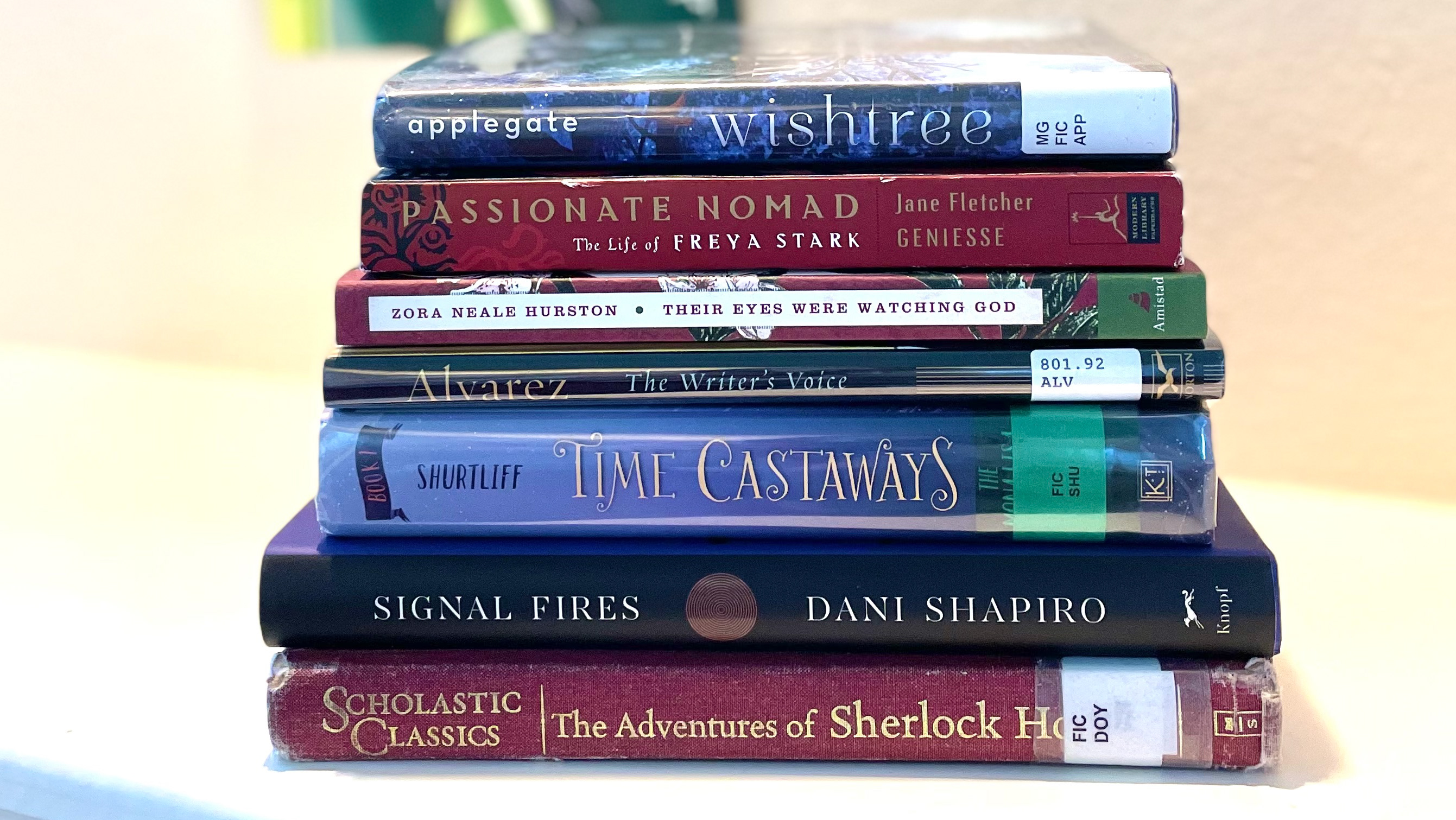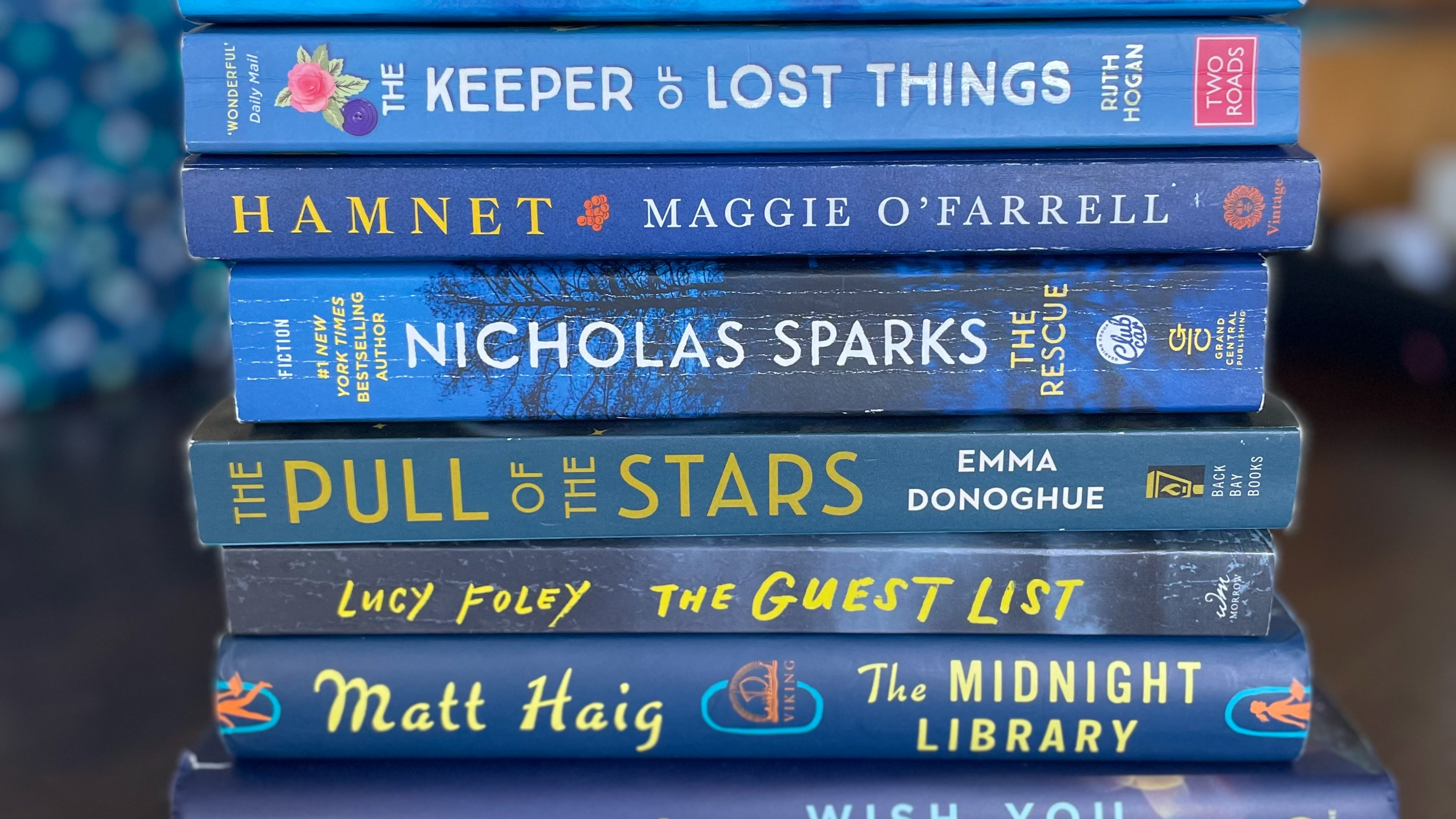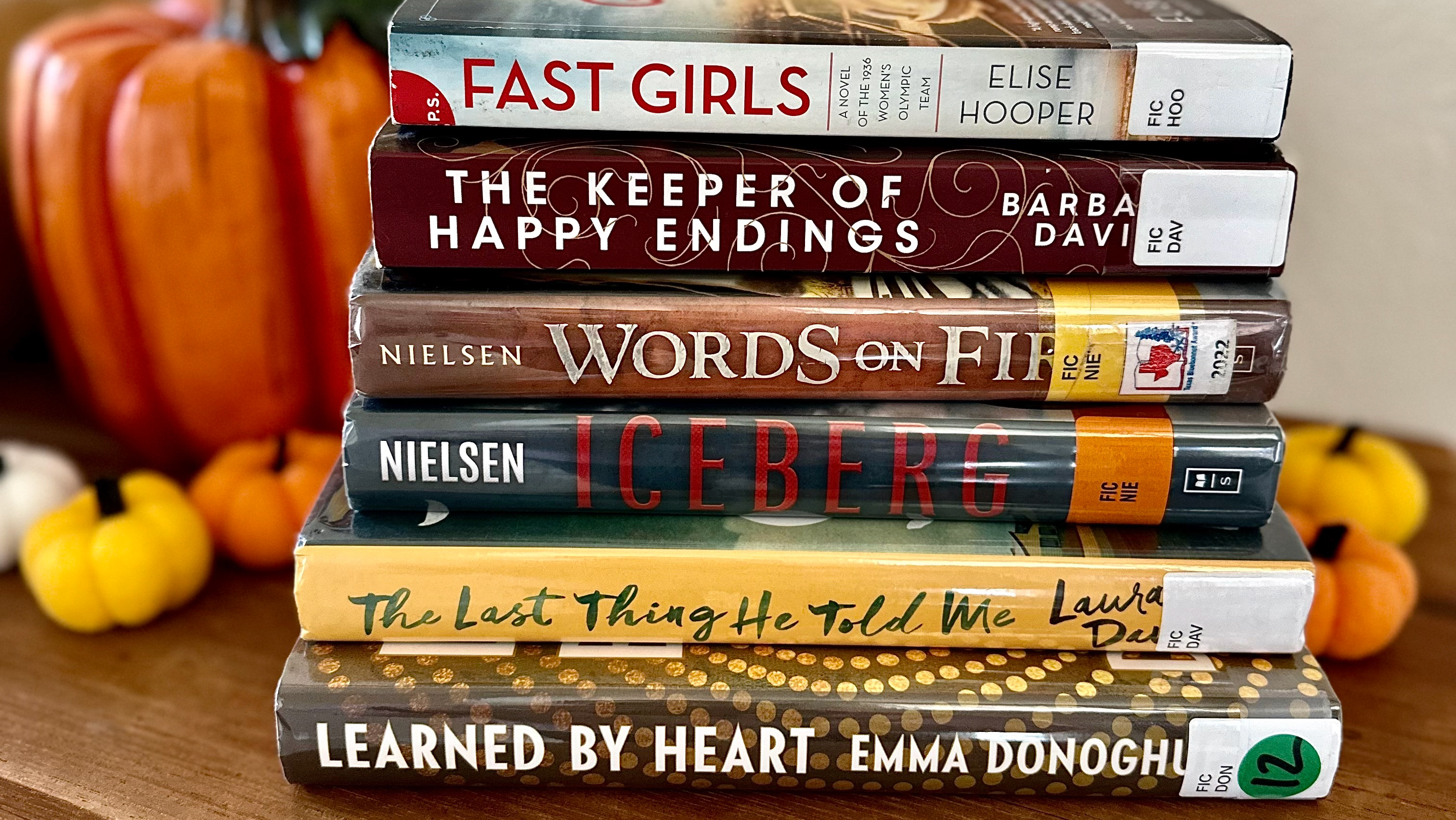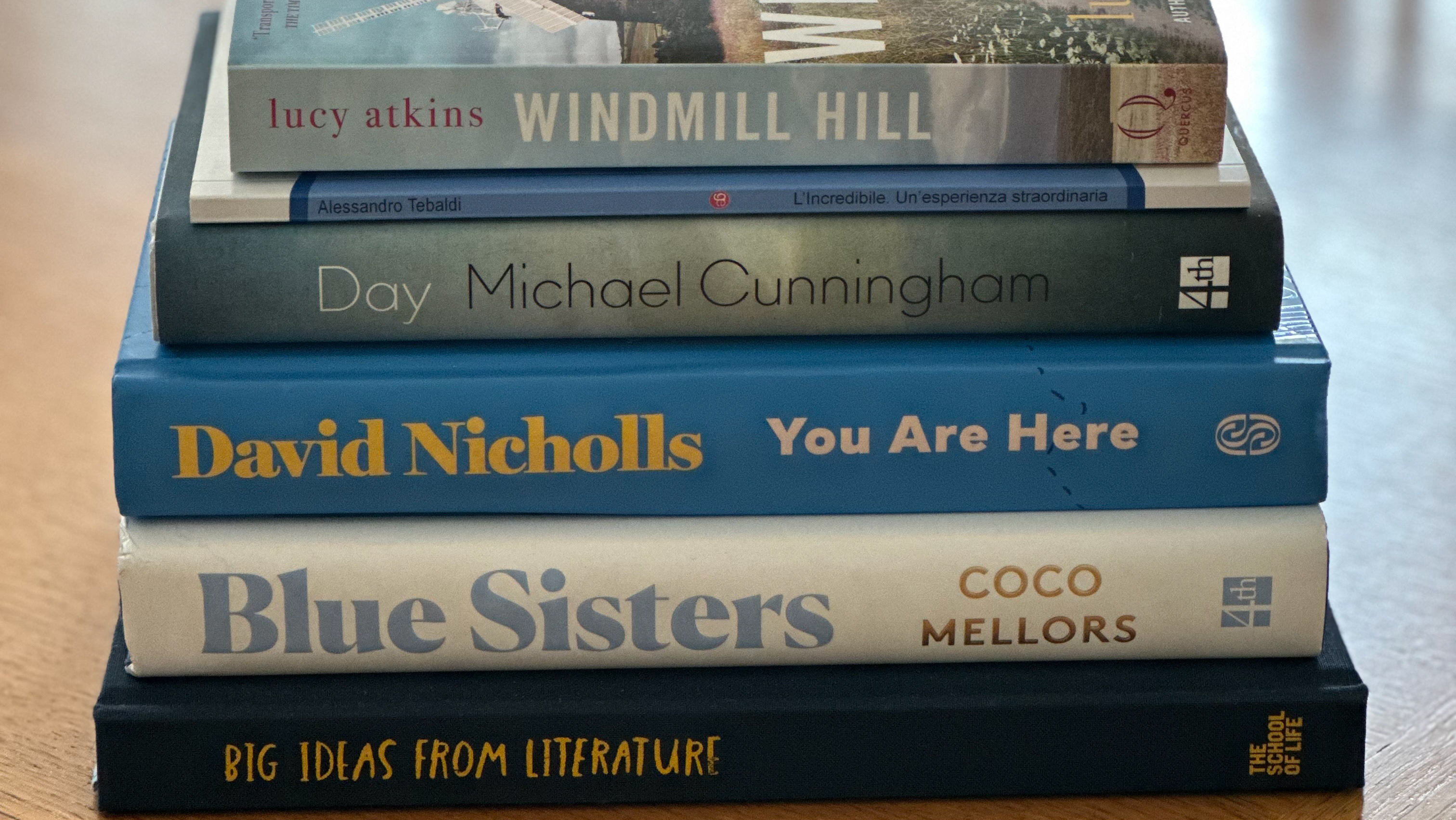Go as a River by Shelley Read
This novel is beautiful in its illustration of the natural world alongside the emotive undercurrents of its characters and their life experiences. Shelley Read's style of writing has a slow and steady rhythm so that as the title suggests, the reader will find themselves floating, reminiscing and contemplating all the issues addressed within this short but dense storyline. The scene in the novel where the eponymous phrase "Go as a river," is spoken from one poor soul to another and quietly reveals the core of this 'spellbinding' , 'stunning', 'luminous' coming-of-age novel.
'When a moment changes everything, how do you live the rest of your life?'
Colorado in the 1940s is where we begin, introduced to Victoria Nash, known as Torie in her teenage years, who is left to run the household for her troubled grieving father, uncle and brother at their peach farm in the Elk Mountains by the Gunnison river.
Although there is a moment early in the novel when she meets Wilson Moon, a young drifter who captures Torie's heart. What unfolds is a hopeful but sadly often tragic sequence of events spanning from the 1940s to 1971, pierced by a heartbreaking decision she is forced to make.
The final chapters are magnificent in this story. Part IV of this novel is particularly poignant and I LOVED the ending.
"So much had changed, but history still clung to me like stabbing, stubborn burs. This seemed to me the proper place for a reunion, a reckoning with the past before turning to the future, but looking at the restless blue water where Iola once stood, I was no longer sure."
review by Christina Francis-Gilbert
August Blue by Deborah Levy
'Deborah Levy writes like a dream, and I mean that quite literally' Stuart Kelly, Scotsman
This novel is what I'm going to call a 'snapshot story' in that it is a series of vignettes that tenuously grasp hold of each other before swinging past the reader to grab hold of another story thread from behind you. This seems a poetic way to describe a plot that weaves all over the place! We are first placed in media res in Greece, in September in the mind of a character who tells us of a female she first sees 'in a flea market in Athens buying two mechanical dancing horses.' What a fantastic (albeit weird) opening image. The protagonist Elsa M. Anderson - former child prodigy, feels undefined, unable to fulfil the identity of concert pianist she has acquired with no personal understanding. She has recently walked off the stage in Vienna, mid-performance and now faces a life of insignificance, needing to tutor music students in place of her own creative music-making. She appears lost and without identity, but obsessed with the girl in the flea market who she thinks is her double, wanting "the same things. She was me and I was her" We learn this tale must be happening sometime post our recent pandemic years, since we can't "see much of her face because the blue clinical mask we were obliged to wear at this time was stretched over mouth and nose."
The protagonist keeps us with her on visits to the Greek islands, letting us see her lack of direction, then she takes us to North London in October, to Paris in November, back to London in December, then to Sardinia and Paris the following summer. We chase her uncertainty, wanting to know why she has ended up in this strange orphan-like existence. This novel has a surreal quality to it and its lyrical ambiguity and the musical sway of Levy's scene descriptions allows us to flit like insects through a storyline that doesn't seem to be going anywhere.
And then suddenly, elements of the story compress and intertwine more coherently around the protagonist, giving Elsa a glimpse at what she has been searching for, who she is, where she has come from, her true heritage, her mother, the life as a child, and thus her true identity. In contrast, at this stage, as a reader I felt released with force from the narrator's tension. Readers may imagine the concert music which Deborah Levy would like you to hear at this point in the story. Controlled, composed and accurate. Yet crushing and loud.
"A dazzling portrait of melancholy and metamorphosis, August Blue uncovers the ways in which we seek to lose an old story, find ourselves in others and create ourselves anew."
review by Christina Francis-Gilbert
The Yellow Wallpaper by Charlotte Perkins Gilman
This is a short story by Charlotte Perkins Gilman of only 32 pages but my Virago Modern Classic edition has an introduction by Maggie O'Farrell and and incredibly interesting Afterword by Elaine R. Hedges. It's a must-read and one I've wanted to get to, yet never have. It's chilling and unforgettable in terms of how accurately it appears to present mental illness, loneliness, discrimination, deterioration of sense of self. It's horrifying to see it written down how so many women through the ages have not been allowed to express themselves, have been suppressed, dismissed, controlled, held down to "recover" from childbirth and other such female life events, and that clearly this exasperates mental challenges and causes horrendous detrimental effects.
In brief, the story is based on the author's own experiences, so even more harrowing to read. She tells of her isolation in a room with bars on the windows and a terrible repeating pattern of yellow wallpaper, which pushes her even further to insanity in its images of creeping women and faces, 'the faint figure behind seemed to shake the patter, just as if she wanted to get out.' She is not allowed to write or express any form of creativity, or see her newborn child. She is forced to rest and recuperate and the reader feels like screaming that this cannot be a healthy way to regenerate energy and positive mental health.
Such a sad story of a person who needed help but was pushed in the opposite direction by circumstances, the time period and gender discrimination or miscomprehension of the time. Nevertheless, incredible to also read of all that Charlotte Perkins Gilman did achieve in her career of writing about women, economics, her attack on the nuclear family, her aim for social change and others. Her suggested solutions included community kitchens, childcare centers 'to release the child and the mother from the tyranny of the individual family.'
Makes me think of other such novels like 'One Flew Over the Cuckoo's Nest' by Ken Kesey and 'The Vanishing Act of Esme Lennox' by Maggie O'Farrell, 'The Woman in White' by Wilkie Collins, and 'The Bell Jar' by Sylvia Plath.
review by Christina Francis-Gilbert
Brooklyn by Colm Toibin
Having migrated on a national and international level across counties, countries and continents, the feeling of homesickness is a familiar one for me. When I got to the pages in 'Brooklyn' where Colm Toibin's character Eilis is made aware that her physical and mental symptoms are related to missing her home and family back in Ireland, I had to pause and reminisce. The representation of such emotion and raw sadness at her distance from a place and people of recognition is perfect.
"All this came to her like a terrible weight and she felt for a second that she was going to cry. It was as though an ache in her chest was trying to force tears down her cheeks despite her enormous effort to keep them back. She did not give in to whatever it was. She kept thinking, attempting to work out what was causing this new feeling that was like despondency..."
And so much more. Toibin captures the inner turmoils of his characters so well and the context in this novel offers us a love story where love forges through as a healing agent. Eilis eventually takes on study and busies herself so as to forget about what she is missing back in Ireland. Readers have already connected with her in her initial journey across the Atlantic on an ocean liner and as she tries to connect with others in an uncomfortable workplace and tricky accommodation. When she meets an Italian boy Tony, who incidentally is described as an attractive humble guy with a beautiful manner, who dates Eilis discreetly and marries her before she has to return back to Ireland later in the novel.
Yet, the frequent unsettled minds of people who are accustomed to moving from one place to another, and between one group of people and another opens up a new difficult theme since Eilis returns 'home' to her mother to support her family grieving, meets up and is entertained by a love interest from her youth, verges so close to being unfaithful, but ultimately makes peace with her distance from the home she once had, making Brooklyn her new home.
I cannot wait to get a hold of 'Long Island' now, which is Colm Toibin's next novel that follows on from this one. There are a number of loose ties in 'Brooklyn' which I know will be pulled into the narrative of 'Long Island'.
Interested to know if this novel has as much resonance for those who have never lived away from home who have not experienced migration or distance from family and place in any way?
review by Christina Francis-Gilbert
The Days I Loved You Most by Amy Neff
Goodreads Review
review by Christina Francis-Gilbert

